Filter by
Eyetracking and applied linguistics
Eyetracking has become a powerful tool in scientific research and has finally found its way into disciplines such as applied linguistics and translation studies, paving the way for new insights and challenges in these fields. The aim of the first International Conference on Eyetracking and Applied Linguistics (ICEAL) was to bring together researchers who use eyetracking to empirically answer th…
- Edition
- -
- ISBN/ISSN
- 9783946234654
- Collation
- iv, 192 p.; 22 cm.
- Series Title
- -
- Call Number
- 418 EYE e
Uncertainty in deliberate lexical interventions: Exploring Esperanto speakers…
Language managers in their different forms (language planners, terminologists, professional neologists …) have long tried to intervene in the lexical usage of speakers, with various degrees of success: Some of their lexical items (partly) penetrate language use, others do not. Based on electronic networks of practice of the Esperanto speech community, Mélanie Maradan establishes the foundati…
- Edition
- -
- ISBN/ISSN
- 9783732992379
- Collation
- 373p.: ill.
- Series Title
- -
- Call Number
- 414 MAR u
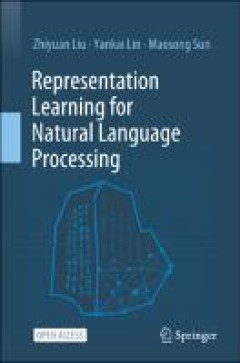
Representation learning for natural language processing
This open access book provides an overview of the recent advances in representation learning theory, algorithms and applications for natural language processing (NLP). It is divided into three parts. Part I presents the representation learning techniques for multiple language entries, including words, phrases, sentences and documents. Part II then introduces the representation techniques for th…
- Edition
- -
- ISBN/ISSN
- 9789811555732
- Collation
- xxiv, 334p.: ill.
- Series Title
- -
- Call Number
- 006.35 LIU r
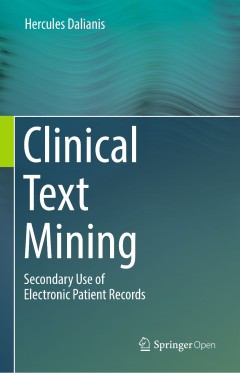
Clinical text mining : secondary use of electronic patient records
This open access book describes the results of natural language processing and machine learning methods applied to clinical text from electronic patient records. It is divided into twelve chapters. Chapters 1-4 discuss the history and background of the original paper-based patient records, their purpose, and how they are written and structured. These initial chapters do not require any techn…
- Edition
- -
- ISBN/ISSN
- 9783319785035
- Collation
- xvii, 181p. : ill.
- Series Title
- -
- Call Number
- 006.312 DAL c
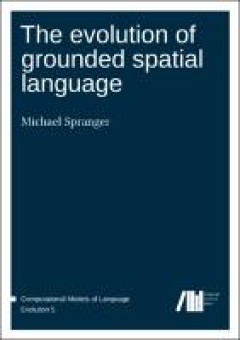
The evolution of grounded spatial language
This book presents groundbreaking robotic experiments on how and why spatial language evolves. It provides detailed explanations of the origins of spatial conceptualization strategies, spatial categories, landmark systems and spatial grammar by tracing the interplay of environmental conditions, communicative and cognitive pressures. The experiments discussed in this book go far beyond previous …
- Edition
- -
- ISBN/ISSN
- 9783946234142
- Collation
- X, 267 p.
- Series Title
- -
- Call Number
- 402.85 SPR e
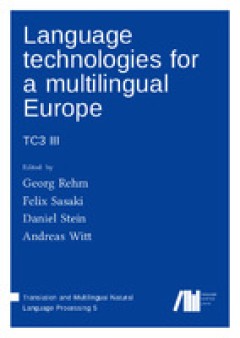
Language technologies for a multilingual Europe : TC3 III
This volume of the series “Translation and Multilingual Natural Language Processing” includes most of the papers presented at the Workshop “Language Technology for a Multilingual Europe”, held at the University of Hamburg on September 27, 2011 in the framework of the conference GSCL 2011 with the topic “Multilingual Resources and Multilingual Applications”, along with several additi…
- Edition
- -
- ISBN/ISSN
- 9783946234739
- Collation
- III, 208 p.
- Series Title
- -
- Call Number
- 418.020285635 LAN l
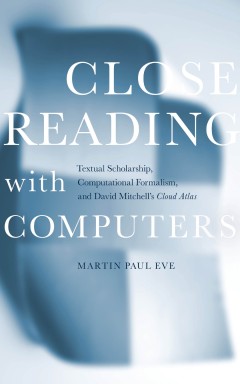
Close reading with computers : textual scholarship, computational formalism, …
Rather than working at the usual scales of distant reading, this book shows what happens when we bring techniques from the digital humanities to bear on a single novel for close readings.
- Edition
- -
- ISBN/ISSN
- 9781503609372
- Collation
- xv, 251p. : ill.
- Series Title
- -
- Call Number
- 823.914 EVE c
 Computer Science, Information & General Works
Computer Science, Information & General Works  Philosophy & Psychology
Philosophy & Psychology  Religion
Religion  Social Sciences
Social Sciences  Language
Language  Pure Science
Pure Science  Applied Sciences
Applied Sciences  Art & Recreation
Art & Recreation  Literature
Literature  History & Geography
History & Geography